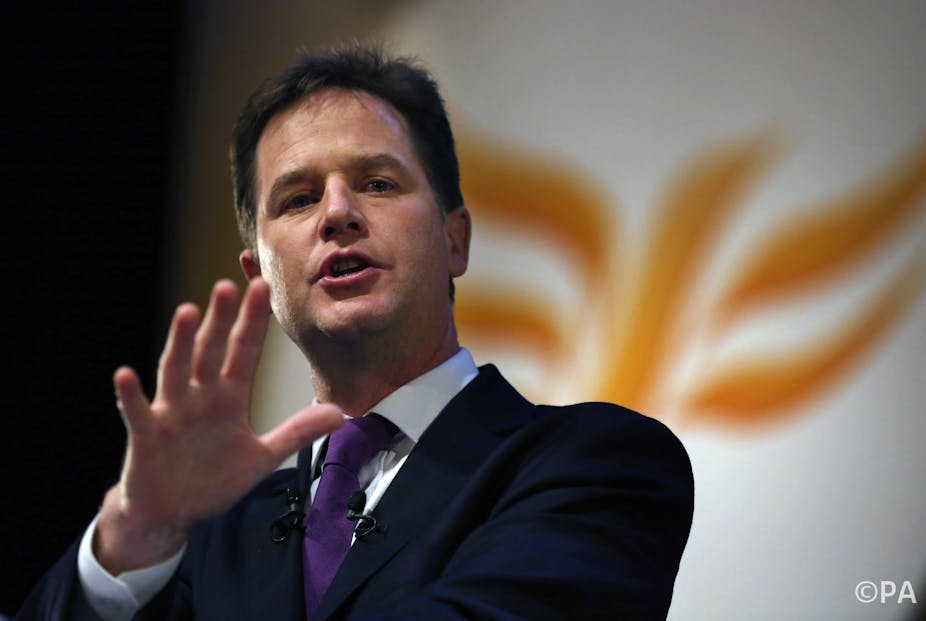Nick Clegg “is for in”. In for Europe, in for the economic benefits, and in for better student access to European finances. His argument is that Britain being in Europe will help the UK economy prosper further with continued access to global markets. And, of course, he is correct. Britain in Europe will be far stronger than if the country disconnects itself from those markets and ceases to be the strong player that the United States expects us to be. But Clegg’s message faces a few problems.
Clegg has released a video to get across his message that we can’t trust the Tories on Europe, but the Conservatives are trustworthy enough for the two parties to work closely on broader economic strategy, social and welfare reforms, education policy, and crime. This reduces the rhetorical credibility of his argument because if the Tories can be trusted on those issues, why not Europe?
We need to be in Europe to deal with climate change, he says, but on the domestic front the coalition has cut spending to those institutions that strive to do just that. This is not the greenest government ever. And the allusion to greater financial benefits for students will not wash away the memory of the tuition fees increases that were implemented by the Liberal Democrats themselves. There is something of a credibility gap in the premise of his argument.
Clegg’s position is premised upon Britain benefitting from being in Europe. These benefits were clear cut before the financial crisis and subsequent Eurozone crisis, but today they are a much harder sell.
Britain is a major player in the EU, but the narrative established by the Coalition has been those global fiscal problems should legitimise austerity. Cuts to social spending, cuts to disability benefits, and cuts to climate change measures were justified on the grounds of tightening our belt. Because the coalition has successfully established the narrative of cuts resulting from the global financial crisis, it would be incredibly difficult for that to be subverted by highlighting the economic benefits of Britain’s membership of the EU. Indeed, Clegg concludes his presentation saying that leaving Europe would harm the recovery.
The recovery he is referring to also lacks a meaningful feel-good factor, and many have pointed out its similarity to the credit-fuelled housing bubble prior to 2008. It is also a recovery for which George Osborne has claimed much of the credit. Clegg’s argument that it would be risked by not voting Liberal Democrat in May is therefore somewhat disingenuous.
This appeal for votes also sounds like it comes from a party of opposition. Clegg washes his hands of the responsibility of government by claiming the Conservatives are the party of “out”. This has strong rhetorical resonance with “these two old parties”, a line Clegg used during the 2010 leadership debates. But he is no longer in a position to make those arguments. He has been in government for four years, and while it can be suggested the Conservatives have nailed their ideological colours to the mast of Euroscepticism, it is unclear that the Liberal Democrats will have a significant impact in impeding that direction of travel.
This video is designed to remind the electorate that the Liberal Democrats are a different party. This differentiation relies upon the electorate somehow forgetting they have been working closely with the Conservatives since 2010.

